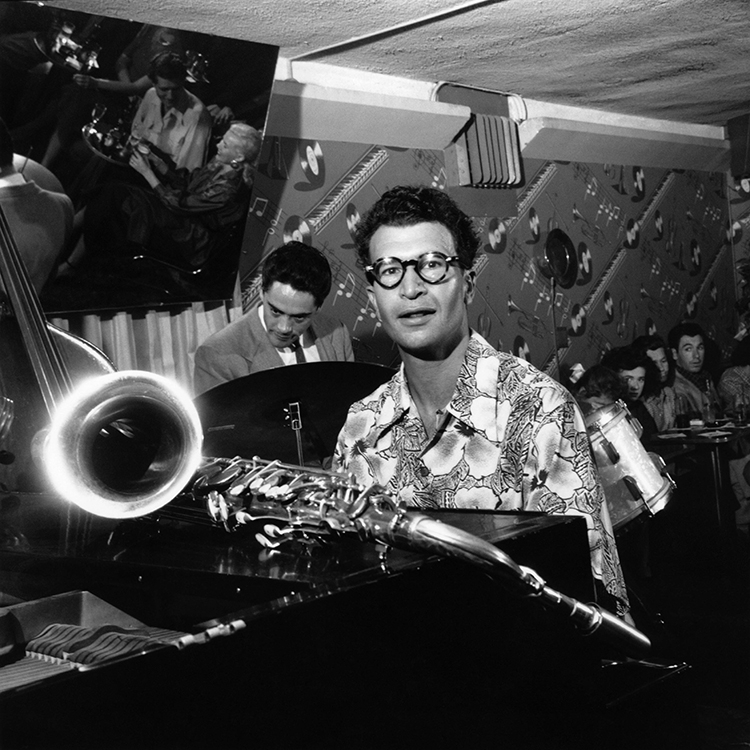I open my book Dave Brubeck: A Life in Time in 2003, with the Dave Brubeck Quartet on the road, traveling out of London toward their next gig. As I sit at his side, Brubeck engages in free-flowing reminiscence—about working with Louis Armstrong and Leonard Bernstein and about the gangsters who lorded over jazz clubs in the 1950s. Then the narrative turns to 1953, when the Brubeck Quartet was on the American road in a package tour with the Charlie Parker Quintet. Both men were the same age, born in 1920, but it was Parker who was considered the very apogee of modern jazz—to jazz critics and aficionados of the music, the bebop that Parker had helped pioneer was everything.
This felt like the perfect curtain-raiser because it positioned Brubeck solidly at the center of that ongoing debate in the 1950s about where jazz was heading as an art form. He spoke about Parker with affecting warmth; Parker was funny, verbally agile, thirsty for good discussion about music. But he was also troubled. Brubeck remembered a night when Parker suffered a breakdown onstage, then shook his head regretfully as he recalled Parker ignoring his subsequent advice not to become dependent on Mafia heavies for drugs.
Secret History
As I continued to write, I was surprised that this friendship between two giants of modern jazz had been relegated to a footnote in the history of the music, mentioned only rarely, its consequences left largely unexplored. Apart from a handful of pieces by the Parker group furtively recorded by a fan, no music from the tour has survived—rumors of long-lost tapes, Dave and Charlie jamming together, feel fanciful at best, however much I would like to be proved wrong.
Rumors of long-lost tapes, Dave and Charlie jamming together, feel fanciful at best.
But just as Brubeck’s affection for Parker became obvious to me in 2003, Parker, in an extraordinary 1953 radio interview, spoke of how intriguing he found Brubeck’s work “from an intellectual standpoint”—and how it had “a lot of feeling and isn’t missing anything.” As the most influential saxophonist on the planet, Parker was surrounded by pale imitations of his own innovations. In Brubeck, clearly he heard a jazz musician whose deep listening into the modernism of Stravinsky, Milhaud, and Bartók had re-arranged the molecules of harmony—differently than Parker’s had, admittedly, but equally as inventive and open-ended.
Six years later, when the Dave Brubeck Quartet recorded their album Time Out, which spawned the hit single “Take Five,” many jazz critics held their noses in disdain—its melodies were “alien to jazz,” they said, while Brubeck substituted “bombast for swing.” Parker had already been dead for four years when Time Out was released. What would he have made of “Take Five” and “Blue Rondo à la Turk”? It’s impossible to know. But Parker recognized that Brubeck’s work opened up other pathways to the future. And as I traced Brubeck’s story through the decades, writing about his experiments with orchestral composition and how he eventually incorporated rock rhythms and free-form improvisation into his work, Parker’s words were never far from my mind. Perhaps it took a true original like him to hear just how original Brubeck was.
Philip Clark’s biography of Dave Brubeck is out now from Da Capo


